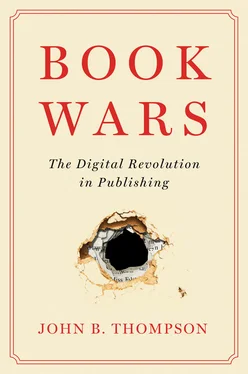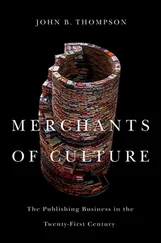Once the deal with Random House was done, Andy was asked to take down the Kindle edition, which he did. The text was lightly edited and then sent out to various prominent authors for pre-publication blurbs – the responses were amazing. An array of well-known sci-fi authors raved about this new addition to their genre. All of this helped the editor to get people talking about the book, generate excitement inside the house and encourage the sales reps to get behind the book and push it when they met with the buyers at the major retail outlets – critical factors in the attempt to make a book stand out from the thousands of new titles that are published every week. The Random House edition of The Martian was eventually published as a hardcover and ebook in February 2014 and went straight onto the New York Times bestseller list, where it remained for six weeks. A glowing review in the Wall Street Journal described it as ‘utterly compelling … This is techno sci-fi at a level even Arthur Clarke never achieved.’ The paperback edition was released in October 2014 and again went quickly onto the New York Times bestseller list, reaching the number one spot and remaining on the list well into 2015.
There was something remarkable and unprecedented about Andy’s success: through a series of metamorphoses, a text that started life as a blog on someone’s personal website ended up as an international bestseller and a blockbuster film and, with it, a life and a career were transformed. A generation earlier, none of this would have been possible and a talent like Andy’s might well have gone undiscovered. That was one of the many upsides of the digital revolution in publishing: thanks to the internet, talent could be discovered in new ways and a writer who had been beavering away in relative obscurity could suddenly be catapulted into international stardom. Everyone gains – writer, publisher, millions of readers all over the world. But, remarkable though Andy’s success was, this was only one side of the story. The very changes that had enabled Andy to realize his childhood dream were wreaking havoc in an industry that had operated in pretty much the same way for as long as anyone could remember. The industry by which Andy was so pleased to be embraced had, largely unbeknown to Andy, become a battleground where powerful new players were disrupting traditional practices and challenging accepted ways of doing things, all facilitated by a technological revolution that was as profound as anything the industry had experienced in the five centuries since Gutenberg. The astonishing success of The Martian – from blog to bestseller – epitomizes the paradox of the digital revolution in publishing: unprecedented new opportunities are opened up, both for individuals and for organizations, while beneath the surface the tectonic plates of the industry are shifting. Understanding how these two movements can happen simultaneously, and why they take the form that they do, is the key to understanding the digital revolution in publishing.
The digital revolution first began to make itself felt in the book publishing industry in the 1980s. At this time, the world of Anglo-American trade publishing was dominated by three sets of players that had become increasingly powerful in the period since the 1960s: the retail chains, the literary agents and the publishing corporations. 1The rise of the retail chains began in the US in the late 1960s with the emergence of B. Dalton Booksellers and Waldenbooks, two bookselling chains that took root in the suburban shopping malls that were becoming increasingly prevalent at that time, as the middle classes moved out of city centres into the expanding suburbs. In the course of the 1970s and 1980s, these mall-based bookstores were eclipsed and eventually absorbed by the so-called book superstore chains, especially Barnes & Noble and Borders, which competed ferociously with one another throughout the 1980s and 1990s as they rolled out their superstores across America. Unlike the mall-based bookstores, these book superstore chains located their stores in prime city locations with large floor areas to maximize stock-holding capacity. The stores were designed as attractive retail spaces that would be welcoming and unthreatening to individuals who were not accustomed to going into a traditional bookstore – clean, spacious, well-lit spaces with sofas and coffee shops, areas to relax and read and no need to check in bags as you entered or left the store. Similar developments occurred in the UK with the rise of Dillons and Waterstones, two book retail chains that competed with one another and with WH Smith, the general high-street newsagent and stationer, in the 1980s and 1990s, until Dillons was eventually absorbed into Waterstones.
The result of these and similar developments (such as the increasing role of mass merchandisers and supermarkets as retail outlets for books) was that, by the late 1980s and early 1990s, a substantial proportion of books published by trade publishers were being sold through retail chains that, between them, controlled a large and growing share of the market. The market share of the retail chains put them in a very strong position when it came to negotiating terms with publishers, as the scale of their commitment to a book, and whether they were willing to feature it in front-of-store displays and at what cost, could make a big difference to the visibility and success of a title. The independent bookstores, by contrast, experienced a steep decline. Hundreds were forced into bankruptcy during the 1990s, unable to compete with the extensive stock range and aggressive discounting of the large retail chains. That was the retail setting of the book trade when a small internet start-up called Amazon opened for business from a suburban garage in Seattle in July 1995.
The second key development that shaped the field of Anglo-American trade publishing in the late twentieth century was the growing power of literary agents. Of course, literary agents were not new – they had been around since the late nineteenth century. But for much of the first century of their existence, literary agents had understood their role as intermediaries who were bringing together authors and publishers and negotiating deals that both parties would regard as fair and reasonable. This self-conception of the literary agent began to change in the 1970s and early 1980s as a new breed of agent – what I call the super-agent – began to appear in the publishing field. Unlike most agents, many of whom had previously worked in publishing houses, the new super-agents were outsiders in the world of publishing and were not attached to the traditional practices of literary agents. They understood the role of the agent in a more legalistic way, not so much as intermediaries but rather as advocates of their clients’ – the authors’ – interests. They were prepared to fight, and to fight hard, to maximize the returns to the authors they represented. They didn’t care whether they ruffled the feathers of the big publishers: good public relations were not part of the role of an agent as they understood it. They knew that there was plenty of money to be made in the publishing business, especially with the massive expansion of bookselling capacity that was being created by the rise of the retail chains, and they believed that authors should get their fair share. They also knew that publishers would not hand out large advances and give better terms to authors unless someone was prepared to fight for them.
The more aggressive, combative style of the super-agents was not shared by all agents – indeed, some abhorred the practices of these new kids on the block. But slowly, almost imperceptibly, the culture of agenting began to change. Agenting became less and less about striking deals that kept everyone happy, and more and more about getting the best deal you could for your authors, even if it meant, on occasion, upsetting a publisher or editor with whom you had a long and amicable relationship. This didn’t mean that the size of the advance became the only basis for deciding which publisher to go with – there were always going to be other considerations, such as the nature of the publishing house, the relationship with the editor, the commitment in terms of marketing, etc. But money up front did matter, and increasingly so. Not only was it a means of livelihood for authors, many of whom wanted to live by their writing if they could, but it was also taken as a sign of the publisher’s commitment: the bigger the advance, the more the publisher would be willing to put behind the book in terms of the size of the print run, the marketing budget, the sales effort and so on. In a market where agents controlled access to the most prized new content, the size of the publisher’s advance became an increasingly important factor in deciding who would acquire the rights to a book. Advances escalated, auctions became more common, and eventually it was only the publishers with access to the deepest pockets – and increasingly that meant the pockets of large corporations – who were able to compete for the most sought-after works.
Читать дальше












